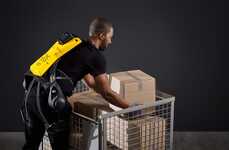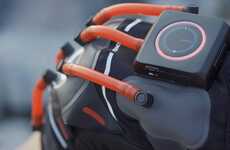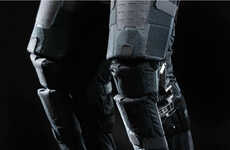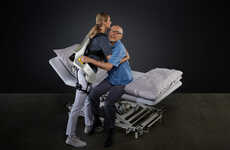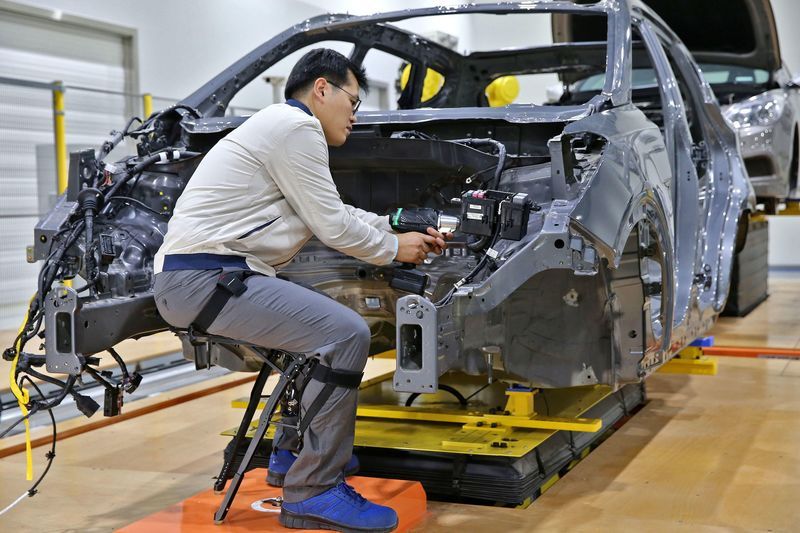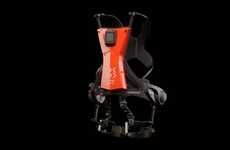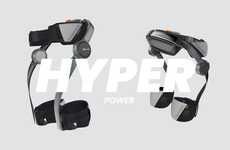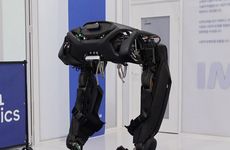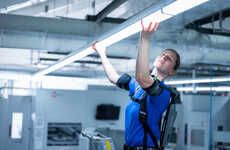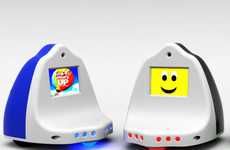
The H-CEX and H-VEX Ensure Hyundai Workers Aren't Injured
Justin Lam — October 26, 2018 — Tech
References: automotiveworld & cnet
Developed for use in its manufacturing facilities, the Hyundai Chairless Exoskeleton, or H-CEX, is a unique wearable exoskeleton meant to protect the knees of workers. Affixing to the user's body with belts on the waist, thigh, and knee, the entire suit allows great freedom of movement. The key to the H-CEX lies in its ability to provide a seat anywhere and everywhere. A set of legs can easily be deployed from the H-CEX and can hold up to 330 pounds at various angles.
Developed alongside the H-CEX was the Hyundai Vest Exoskeleton, or H-VEX. This design focuses on alleviating pressure on a person's body, especially in the knees. The strain on the neck and back is lessened allowing for an extra 132 pounds of strength.
Image Credit: Hyundai
Developed alongside the H-CEX was the Hyundai Vest Exoskeleton, or H-VEX. This design focuses on alleviating pressure on a person's body, especially in the knees. The strain on the neck and back is lessened allowing for an extra 132 pounds of strength.
Image Credit: Hyundai
Trend Themes
1. Wearable Exoskeletons - The development of wearable exoskeletons like the H-CEX and H-VEX provide innovative solutions for protecting workers' knees and reducing physical strain.
2. Freedom of Movement - Exoskeletons like the H-CEX with belts on the waist, thigh, and knee allow workers to have greater freedom of movement while still protecting their knees.
3. Deployable Legs - The ability of exoskeletons like the H-CEX to deploy legs that can hold up to 330 pounds at various angles opens up opportunities for improving worker stability and mobility.
Industry Implications
1. Manufacturing - The manufacturing industry can benefit from using wearable exoskeletons like the H-CEX and H-VEX to protect workers' knees and improve their overall physical well-being.
2. Construction - In the construction industry, wearable exoskeletons like the H-CEX and H-VEX can reduce strain on workers' bodies, particularly in the knees, allowing for increased productivity and decreased injuries.
3. Logistics - Exoskeletons with deployable legs, such as the H-CEX, can disrupt the logistics industry by providing workers with improved stability and mobility, enabling them to handle heavy loads more efficiently.
3.2
Score
Popularity
Activity
Freshness


